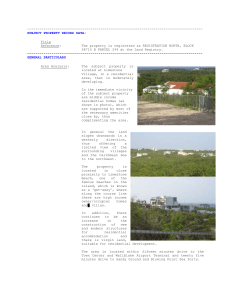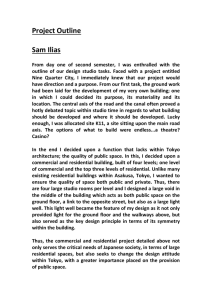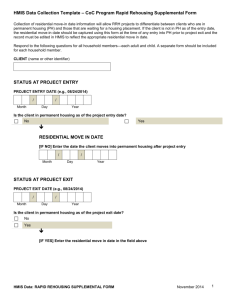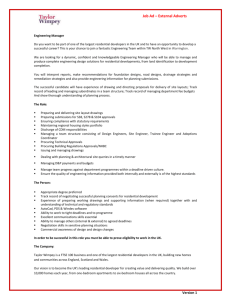new report reveals - the Sustainable Energy Authority of Ireland
advertisement
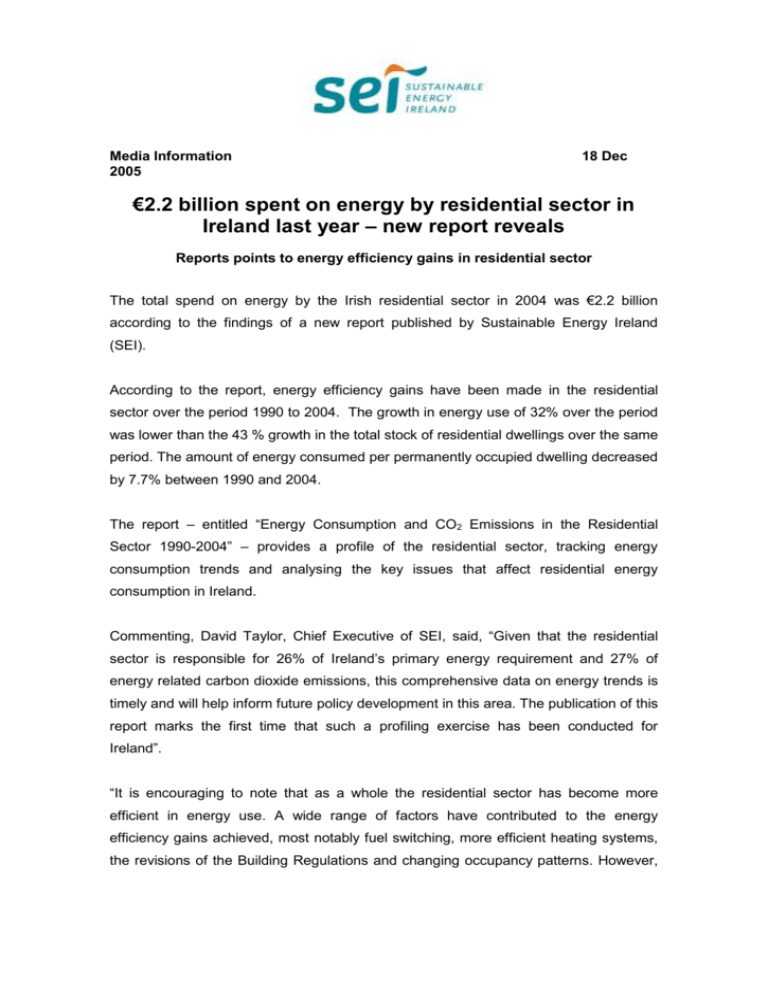
Media Information 2005 18 Dec €2.2 billion spent on energy by residential sector in Ireland last year – new report reveals Reports points to energy efficiency gains in residential sector The total spend on energy by the Irish residential sector in 2004 was €2.2 billion according to the findings of a new report published by Sustainable Energy Ireland (SEI). According to the report, energy efficiency gains have been made in the residential sector over the period 1990 to 2004. The growth in energy use of 32% over the period was lower than the 43 % growth in the total stock of residential dwellings over the same period. The amount of energy consumed per permanently occupied dwelling decreased by 7.7% between 1990 and 2004. The report – entitled “Energy Consumption and CO2 Emissions in the Residential Sector 1990-2004” – provides a profile of the residential sector, tracking energy consumption trends and analysing the key issues that affect residential energy consumption in Ireland. Commenting, David Taylor, Chief Executive of SEI, said, “Given that the residential sector is responsible for 26% of Ireland’s primary energy requirement and 27% of energy related carbon dioxide emissions, this comprehensive data on energy trends is timely and will help inform future policy development in this area. The publication of this report marks the first time that such a profiling exercise has been conducted for Ireland”. “It is encouraging to note that as a whole the residential sector has become more efficient in energy use. A wide range of factors have contributed to the energy efficiency gains achieved, most notably fuel switching, more efficient heating systems, the revisions of the Building Regulations and changing occupancy patterns. However, continued and significant efforts are needed to ensure that this efficiency trend continues”, he said. The House of Tomorrow Programme is one of a number of programmes operated by SEI which, over time, should help improve the energy efficiency of the Irish housing stock. Under this programme, funding of €13.5m has been approved for 61 projects comprising 3078 dwellings demonstrating sustainable energy planning, design and construction practices. Another important development is the imminent introduction of the EU Energy Performance of Buildings Directive. The Directive will affect virtually all buildings residential and non-residential. Once transposed into law it will mean that when a building is constructed, sold or rented out, the owner must provide a Building Energy Rating Certificate to the prospective buyer or tenant. This will be similar to the energy labelling of household appliances or the miles per gallon (litres per kilometre) rating for a car. Sale and rental transactions in the Irish property market are currently running at 170,000 per year. Other findings in the new SEI report include: In 2004, the average household energy bill was €1,513. Total energy expenditure in Ireland’s 1.4 million homes amounted to €2.2 billion in 2004. In 2004 the average household was responsible for over 8 tonnes of CO2 of which 5 tonnes was from direct fuel use, with electricity use accounting for the remainder. In 2004 the average household consumed a total of 24,500 kWh of energy based on climate corrected data. This comprised 19,300 kWh (79%) in the form of direct fossil fuels and the remainder (5,200 kWh) as electricity. Sustainable Energy Ireland was established on May 1st 2002 as a statutory authority charged with promoting and assisting the development of sustainable energy. It is funded by Government under the National Development Plan 2000-2006 with programmes part financed by the European Union. -ends- For further information please email info@sei.ie




